Your Cart
Session Descriptions & Speaker Bios
Wednesday, May 5 (Pre-Conference Workshop)
Clinician Implementation Workshop for the Resilience & Adjustment Intervention (RAI)
9:00 a.m. - 4:00 p.m.
6 Psychology CEU's Available to Participants
Helping persons with traumatic brain injury (TBI) adjust, cope, and resume their lives can be a great challenge. The Resilience and Adjustment Intervention (RAI) is a structured, manual-based approach to helping persons with TBI enhance their resilience and successfully manage common post-injury concerns and challenges. The RAI was developed over the past decade based upon extensive research and more than 30 years of clinical experience. The RAI is appropriate for the full spectrum of injury, from concussion to severe TBI. The workshop format will combine didactic sessions with interactive small group breakouts lead by experienced TBI clinicians with a cumulative experience of leading over 500 RAI participants. Upon successful completion of all workshop components, participants will earn a Certificate of Completion by the VCU TBI Model System verifying their ability to independently implement the intervention.
Learning Objectives:
- Gain fundamental information on the role of resilience in assisting survivors of TBI to achieve psychological well-being;
- Enhance knowledge of the clinical efficacy of a manual-based intervention for promoting resilience after TBI;
- Develop core abilities to effectively tailor the manual-based intervention to specific survivor needs.
About the Speakers

Nancy Hsu, Psy.D.

Ana Mills, Psy.D.

Kristin Graham, Ph.D., CRC
Dr. Nancy Hsu is an Associate Professor and the Director of Outpatient Neuropsychology & Rehabilitation Psychology Services in the Department of Physical Medicine and Rehabilitation at Virginia Commonwealth University (VCU). She earned her doctoral degree in Clinical Psychology from Argosy University – Atlanta and completed her internship at the VA Maryland Health Care Systems in Baltimore. She joined the faculty in 2007 after completing a two-year postdoctoral fellowship at VCU. Dr. Hsu has extensive experience providing individual psychotherapy to the TBI population. She has also worked on the VCU TBI Model System’s local projects as an interventionist, helping survivors build resiliency skills and couples improve their relationships post-injury. She has published peer-reviewed manuscripts, co-authored book chapters, and presented at state and regional professional conferences, as well as conducted workshops internationally.
Dr. Ana Mills is a licensed Clinical Psychologist and Assistant Professor in the Department of Physical Medicine and Rehabilitation at Virginia Commonwealth University Medical Center in Richmond, VA. She specializes in neuropsychological evaluation and psychotherapy for individuals with acquired neurological disorders, with specific emphasis on evaluation and treatment of traumatic brain injury. Dr. Mills’ research activities include resilience after brain injury, cognitive health in aging, and health equity. She has authored a number of articles, book chapters, and presentations on neuropsychology, brain injury, and rehabilitation. Additionally, she is a community support group facilitator for the Brain Injury Association of Virginia and a journal referee for the international research journals Brain Injury and the Journal of Neurotrauma.
Dr. Kristin Graham is an Assistant Professor at Virginia Commonwealth University School of Medicine. She earned her Undergraduate degree in psychology from Wheeling Jesuit University, a Master's degree in rehabilitation counseling from University of Pittsburgh, and completed her Ph.D. in philosophy, rehabilitation science from University of Pittsburgh. Since 2016, Dr. Graham has also acted as a co-leader for the Brain Injury Association of Virginia's support group for people with brain injuries and their families.

Herman Lukow, Ph.D.

Jennifer Marwitz, M.A.
| Dr. Herman Lukow is a Licensed Professional Counselor and Licensed Marriage and Family therapist practicing in the Midlothian, VA area. He completed three years as a post-doctoral fellow with the TBI Model Systems and with Neuropsychology and Rehabilitation Services at Virginia Commonwealth University. In this position he served as the Lead Interventionist for implementing and validating the Resilience Adjustment Intervention, delivering the program to hundreds of people with TBI and presenting findings at a variety of conferences. |
Jennifer Marwitz is an Associate Professor in the Department of Physical Medicine and Rehabilitation at Virginia Commonwealth University. She serves as the Principal Investigator for the Virginia Commonwealth Traumatic Brain Injury Model System. Ms. Marwitz has published more than sixty peer-reviewed manuscripts with many relating to rehabilitation outcome, families, return to work, and emotional well-being. She also serves as Managing Editor of the journal Brain Injury.
Thursday, May 6
Mitch Rosenthal Memorial Lecture
Sponsored by Dr. Nathan Zasler, Tree of Life
10:00 a.m. - 11:00 a.m.
What’s Really Changed in Three Decades of Cognitive Rehabilitation?
This lecture examines the trends in the field of cognitive rehabilitation over the preceding decades. The goal is for participants to reflect on what developments have been impactful in the field in order to reinforce their commitment to furthering these practices in their own work with those affected by brain injury.
Session Objectives:
- List the five major developments in cognitive rehabilitation;
- Describe why each of these developments has been revolutionary;
- Give an example of how each development has furthered the field of cognitive rehabilitation.
About the Speaker

McKay Sohlberg, Ph.D., CCC-SLP
McKay Moore Sohlberg is a Full Professor in the Communication Disorders & Sciences Program at University of Oregon, and a Fellow of the American Speech Language and Hearing Association. Her research focuses on developing and evaluating methods to manage cognitive impairments following acquired brain injury. She has written three seminal textbooks on cognitive rehabilitation and numerous articles. Dr. Sohlberg has been supported by a number of federal projects focused on the development and evaluation of assistive technology to deliver cognitive rehabilitation and measurement of person centered outcomes.
Keynote Presentation
11:15 a.m. - 12:30 p.m.
The New Rules of Resilience: Why Resilience Isn’t Merely Bouncing Back
What makes you resilient? Is it your ability to soldier on, unaffected in the face of adversity? Or perhaps resilience is related to how quickly you bounce back? Many people are surprised to learn that neither of these approaches to challenge activates resilience! In order to harness and enhance your true resilience, you will learn about The Five Practices of Particularly Resilient People, the behaviors that determine whether you will flourish or fold when, not if, you inevitably face challenge, change, and complexity, in both your workplace and in everyday life. You’ll learn how to tangibly increase and improve your resilience through The Five Practices – actions that will sustain you through challenges (including neurological injury and vicarious trauma) experienced by healthcare professionals, in this current global pandemic environment, and beyond, in order to thrive in our ever-dynamic world.
After attending this presentation, audience members will better appreciate:
- Why we face challenge, change, and complexity and the opportunity to be enhanced, instead of diminished by these experiences.
- The myths and truths of resilience that detract from harnessing the properties of resilience.
- The application of The Five Practices of Particularly Resilient People to the experience of medical and healthcare professionals (ranging from physicians, therapists, case managers, and beyond) to provide a guidance for future responses to challenge, change, and complexity.
About the Speaker

Taryn Marie Stejskal, Ph.D.
Dr. Taryn Marie is the former Head of Executive Leadership Development and Talent Strategy at Nike, Global Leadership Development at Cigna, and founded Resilience Leadership, where she serves as the Chief Resilience Officer (CRO). Dr. Marie is a foremost international expert on resilience, in leadership and life. She is the author of “Flourish or Fold: The Five Practices of Particularly Resilient People," expected to release in 2021. She is a Co-Founder of Resilience Element 75 (RE75), focused on making resilience accessible to the world through film and wearable technology as well as serving as one of Marshall Goldsmith’s Top 100 Coaches across the globe. Her groundbreaking research on resilience has been featured in Thrive Global, Ladders, and Women’s Daily Magazine, on television broadcasts, and on platforms including Happify, eMindful, and Powerful Universe. Dr. Marie received an undergraduate degree in psychology from the University of Michigan along with a Master’s degree in Marriage and Family Therapy (MFT) and a doctorate degree from the University of Maryland, College Park. She completed pre and post-doctoral fellowships at Virginia Commonwealth Medical University.
Breakout Sessions (choose one)
1:00 p.m. - 2:00 p.m.
Option 1: Mutual Mentor Hour
| In times of change learners inherit the earth; while the learned find themselves beautifully equipped to deal with a world that no longer exists. ~Eric Hoffer We invite you to join a virtual event where participants will come together to teach and mentor one another. Large group sessions will bookend a series of small group break-out conversations where participants can share their best advice, support, and inspiration to nurture one another. |
Participants will leave the session having experienced:
- At least one opportunity to learn from or be inspired by someone else;
- At least one opportunity to teach or inspire someone else;
- At least one moment of increased self-awareness.
About the Speaker
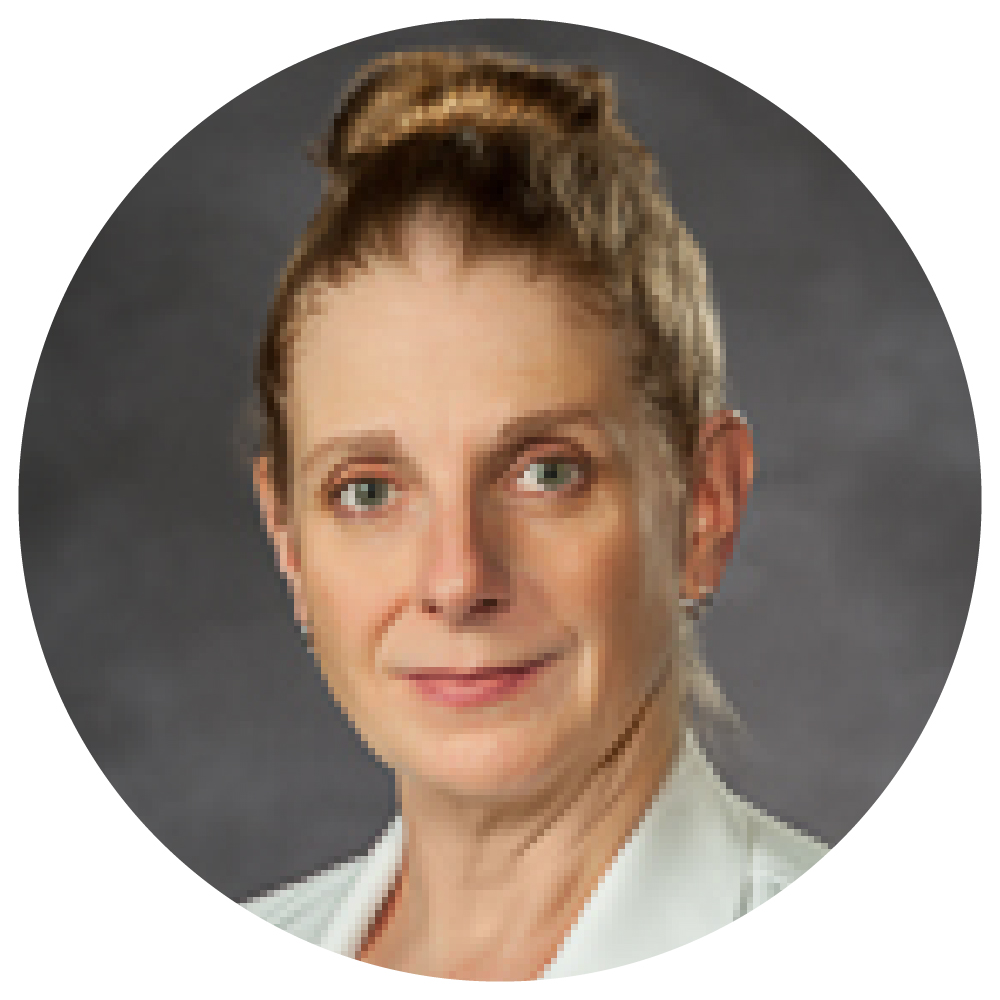
Cynthia Rolston, Ph.D., LCP
Dr. Cynthia Rolston graduated in 1993 from Marietta College Summa Cum Laude with her B.A. in Psychology and a Certificate in Leadership Studies. She earned her Master's degree in Clinical Psychology from Ohio University in 1996. In 1998, she completed her Pre-Doctoral Internship in Clinical Child Psychology at Virginia Commonwealth University's Virginia Treatment Center for Children. Dr. Rolston then earned her Ph.D. in Clinical Psychology from Ohio University in 2002. She joined the VCU Physical Medicine & Rehabilitation Department faculty in July 2011 as an Assistant Professor and was recently promoted to Associate Professor in July 2020. Her expertise is in Rehabilitation Psychology.
Option 2: Virtual Tour of Sheltering Arms Institute and Discussion with the Chief Medical Officer
Sheltering Arms and VCU Health have come together to create the Sheltering Arms Institute (SAI), a state-of-the-science, destination, translational research hospital. Join us for an exclusive, virtual behind-the-scenes look and an opportunity to pose questions to the Institute's Chief Medical Officer, Dr. Richard Kunz.
Session Objectives:
- Identify the conditions and services Sheltering Arms Institute offers at their hospital;
- Identify research projects Sheltering Arms Institute collaborates on that work to improve the quality of rehabilitative care and accelerate patient outcomes;
- Identify cutting-edge patient care technology and rehabilitation equipment available.
About the Speaker
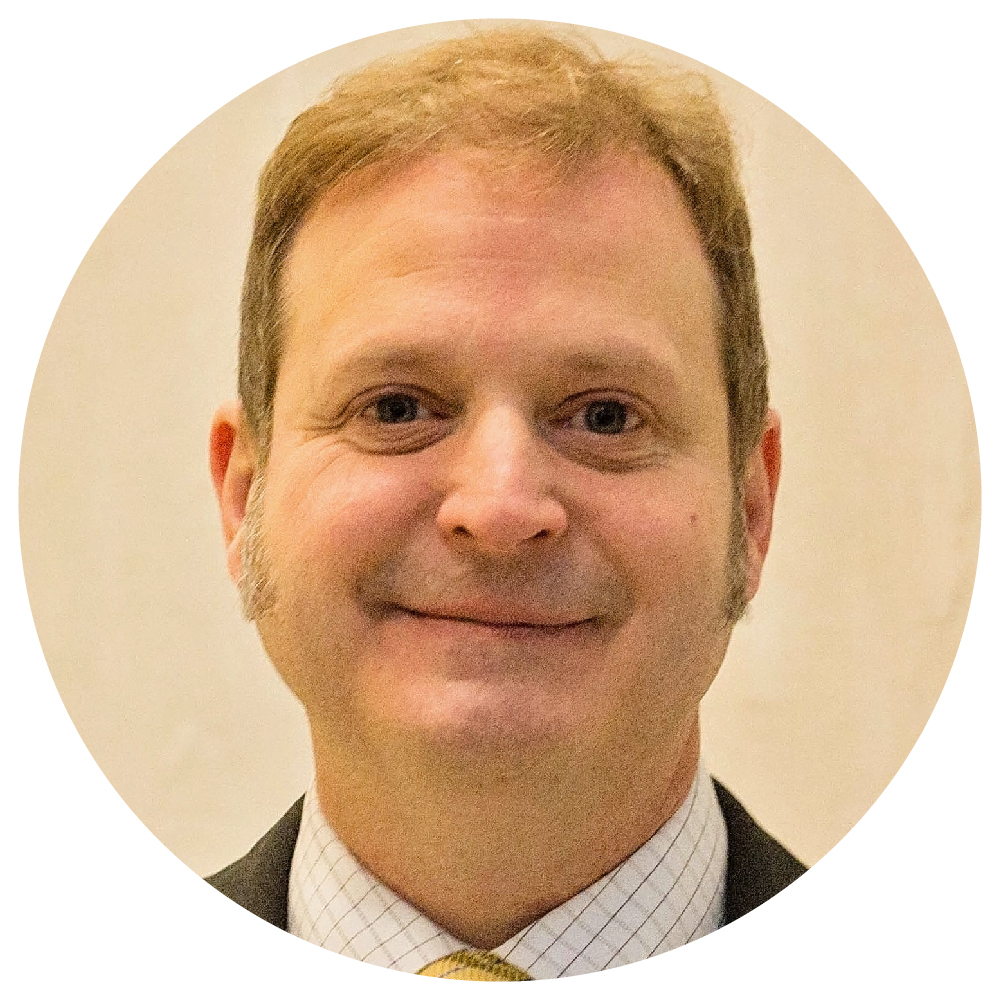
Richard Kunz, M.D.
Dr. Richard Kunz is an Associate Professor in the Department of Physical Medicine and Rehabilitation at the Virginia Commonwealth University School of Medicine. He is also the Chief Medical Officer of the Sheltering Arms Institute. Dr. Kunz earned his Bachelor's of Science in psychobiology and a Master’s degree in behavioral neuroscience from the University of Southern California. Additionally, he holds his doctorate of medicine from Virginia Commonwealth University, where he completed a clinical fellowship in brain injury rehabilitation.
Breakout Sessions (choose one)
2:30 p.m. - 3:30 p.m.
Option 1: Leveraging Population-Based Epidemiological Studies to Evaluate the Later-Life Health Consequences of Lifetime TBI Exposure
Population-based epidemiological studies that systematically measure traumatic brain injury (TBI) exposure are a widely untapped secondary data resource to compare health outcomes of persons with and without TBI. Unlike most existing TBI studies, participants are not selected into the study based on TBI status; therefore, findings may be generalizable to the larger population at-large. Dr. Kumar, an epidemiologist by training, will be reviewing three studies he has led leveraging population-based epidemiological studies to study the health effects of TBI.
Session Objectives:
- Understand the effects of TBI on later life loneliness;
- Evaluate if older adults with and without TBI have different trajectories of depression severity in later life;
- Compare pain and opioid use in later life among adults with and without history of TBI.
About the Speaker

Raj G. Kumar, Ph.D., MPH
Dr. Raj Kumar is an epidemiologist and post-doctoral fellow in the Brain Injury Research Center at Mount Sinai. He obtained his Master's of Public Health (MPH) in Chronic Disease Epidemiology from Yale University in 2013, and Ph.D. in Neuroepidemiology from the University of Pittsburgh in 2018. Dr. Kumar is an expert in the application of advanced epidemiological methods to neurological populations, particularly TBI. Dr. Kumar has co-authored over 40 original research articles, reviews, and book chapters in TBI, and has presented his research at several national meetings. Earlier this year, he joined the Editorial Board of the Journal of Head Trauma Rehabilitation and is also co-chair of the VA Collaborative SIG of the TBI Model Systems National Database.
Option 2: Practical Guidance for Clinicians: Evidence-Based Recommendations for Teleneuropsychological Assessment
Spurred by challenges introduced by the COVID-19 pandemic and a continuing effort to increase access to care, there is a greater need to adapt traditional neuropsychological assessment to a telehealth modality. Existing research on teleneuropsychology feasibility, validity, reliability, and acceptability will be reviewed during the presentation. New insights on common teleneuropsychology administrative modifications from a systemic review in preparation will also be discussed. Examples of in-clinic teleneuropsychology models and practical recommendations informed by previous research and current clinical practice will be provided. In addition, extant research on the provision of cognitive rehabilitation via telehealth will be presented.
Session Objectives:
- Summarize extant evidence for feasibility, validity, reliability, and acceptability of teleneuropsychology;
- Provide examples of in-clinic teleneuropsychology models and practical recommendations;
- Summarize extant research on cognitive rehabilitation in a telehealth modality.
About the Speakers
Jessica Alva, M.D., Ph.D.
Sarah Clark, M.D.
Tammy Wildgoose, Ph.D.
Dr. Jessica Alva is a clinical neuropsychologist at the Central Virginia VA Healthcare System. She obtained an undergraduate degree from George Mason University and a Ph.D. in clinical psychology from Case Western Reserve University. Dr. Alva then completed a clinical neuropsychology/geropsychology internship at the American Lake VA and a two-year post-doctoral fellowship in clinical neuropsychology specializing in geriatric neuropsychology and
teleneuropsychology at the West Los Angeles VA. Her clinical responsibilities include conducting neuropsychological assessments and decision-making capacity evaluations of veterans with a wide range of complex neurocognitive concerns through the Outpatient Mental Health Clinic Neuropsychology Service. Dr. Alva's areas of interest include neurodegenerative disease, teleneuropsychology, and dementia caregiver support.
Dr. Sarah Clark is currently completing a two-year fellowship in rehabilitation psychology at the Central Virginia VA HCS. She recently accepted a staff position as an integrated psychologist in the Headache Center of Excellence within the Department of Neurology at the Central Virginia VA HCS. She completed her doctoral training at Virginia Commonwealth University and her APA-accredited internship in health psychology at VA Maryland HCS-University of Maryland SOM Psychology Internship Consortium in Baltimore, MD.
Dr. Tammy Wildgoose earned her B.S in physiology and neuroscience from the University of California at San Diego and then her Ph.D. in clinical psychology with a focus in health psychology from CSPP at Alliant International University in 2019. Her dissertation investigated the relationship between physiological self-regulation of heart rate variability and performance anxiety for competitive performance in a cohort of CrossFit athletes. She completed her pre-doctoral internship at the McGuire VAMC on the Interprofessional Geropsychology track and she is currently in the home stretch of her two-year postdoctoral fellowship in rehabilitation psychology. In September she will join the McGuire VAMC SCI/D inpatient
unit as a staff psychologist.
Friday, May 7

The Jeffrey Kreutzer Lecture in Brain Injury Rehabilitation
9:30 a.m. - 10:30 a.m.
Weasilience: Handling Life's Wild Moments
A humorous, informative, and inspirational presentation about developing resilience after adversity. Using lessons learned from her 21-year brain injury journey and insights from research, Carole Starr will share strategies professionals can use to help brain injury survivors increase their resilience. These strategies apply to more than brain injury - they’re for anyone coping with adversity. There’s a funny story behind the unusual title of this speech, one that you won’t want to miss!
Session Objectives:
- Define resilience;
- List three "Weasilience" lessons that relate to overcoming adversity;
- List three strategies to increase resilience.
About the Speaker

Carole Starr
Carole Starr is a brain injury survivor, national keynote speaker, author of the award-winning bookTo Root & To Rise: Accepting Brain Injury, and the founder/facilitator of Brain Injury Voices, a nationally recognized survivor volunteer group in Maine.
Ethics Presentation
11:00 a.m. - 12:30 p.m.
Heading Forward Ethically: Ethical Decision-Making and Brain Injury Rehabilitation
This interactive session will include attention to a concise ethical decision-making model and relevant resources (including codes of ethics, using the Code of Professional Ethics for Rehabilitation Counselors as an example) to discuss case study examples. The session will explore questions such as: what kinds of ethical challenges might rehabilitation practitioners working with people who have brain injuries face? How can those practitioners resolve such dilemmas or problems in an ethical manner? What kinds of resources are available to assist them with this process? And what kind of framework can guide them in thinking through the process, instead of jumping immediately to hasty conclusions?
Session Objectives:
- Describe examples of ethical challenges practitioners working with people who have brain injuries could face;
- Identify specific ethical guidelines and resources that may be helpful in resolving such challenges;
- Apply a specific ethical decision-making model to case studies involving individuals who have brain injuries.
About the Speaker
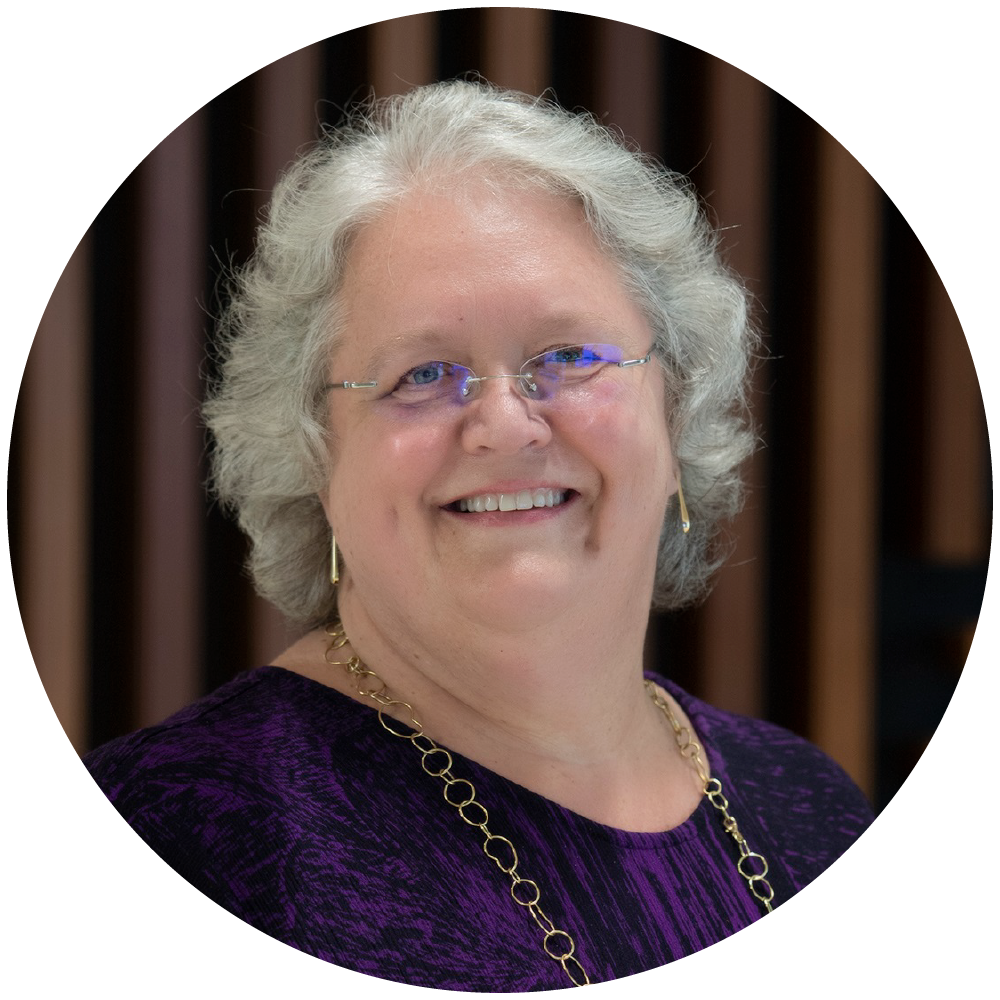
Christine Reid, Ph.D., CRC, CLCP, Licensed Applied Psychologist
Dr. Christine Reid is Professor of Rehabilitation Counseling at Virginia Commonwealth University (VCU) in Richmond, VA. She teaches courses, including those focused on research, evaluation, life care planning, and multicultural counseling for the Rehabilitation Counseling Master’s degree and Health-Related Sciences Ph.D. programs at VCU, and has been the project director for multiple federal grants. She has over 30 years of experience in rehabilitation counseling education, research, and professional practice. Her record includes more than 90 publications and over 200 professional presentations for regional, national, or international audiences. She has served on national boards such as the Commission on Rehabilitation Counselor Certification and the Council on Rehabilitation Education; her private practice includes life care planning and vocational analysis as well as consultation to develop and implement rehabilitation research, education, and certification programs.
Breakout Sessions (choose one)
1:00 p.m. - 2:00 p.m.
Option 1: Racial/Ethnic and Immigration-Based Disparities in the 10 Years after TBI: Arrest Probability, Functional Independence, Depression, Anxiety, and Life Satisfaction
This session will present racial/ethnic and immigrant status disparities in long-term functional and mental health outcomes among Traumatic Brain Injury Model Systems (TBIMS) participants. A major goal of this session is to provide participants with potential risk factors that could drive these observed disparities, as well as present future directions for research that could assess the degree to which unexamined factors may contribute to TBI health disparities.
Session Objectives:
- Identify key disparities in longitudinal trajectories of functional and mental health outcomes as a function of immigration status;
- Identify racial/ethnic disparities of arrest probability trajectories and distinguish main injury and demographic factors that may explain these disparities;
- Recognize future directions for clinical and public health initiatives that can address these observed TBI health disparities.
About the Speakers
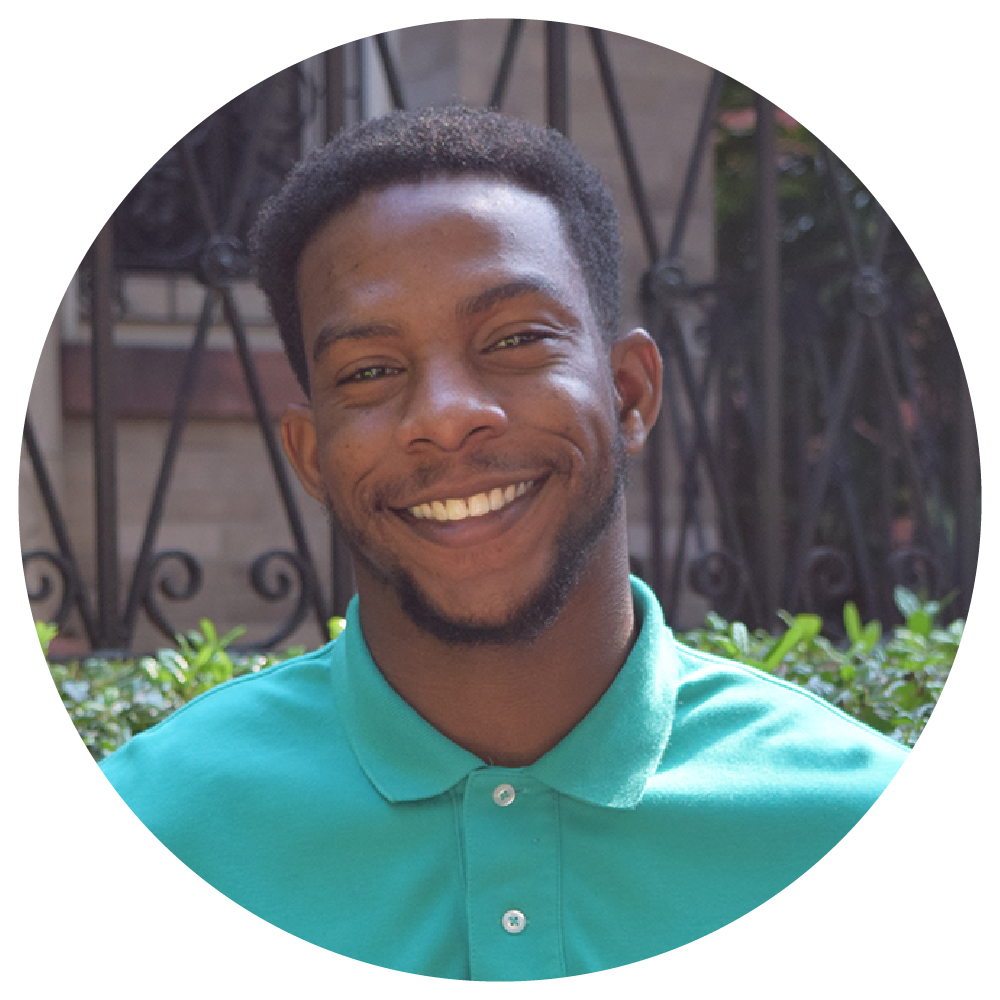
Mickeal Pugh

Chimdindu Ohayagha
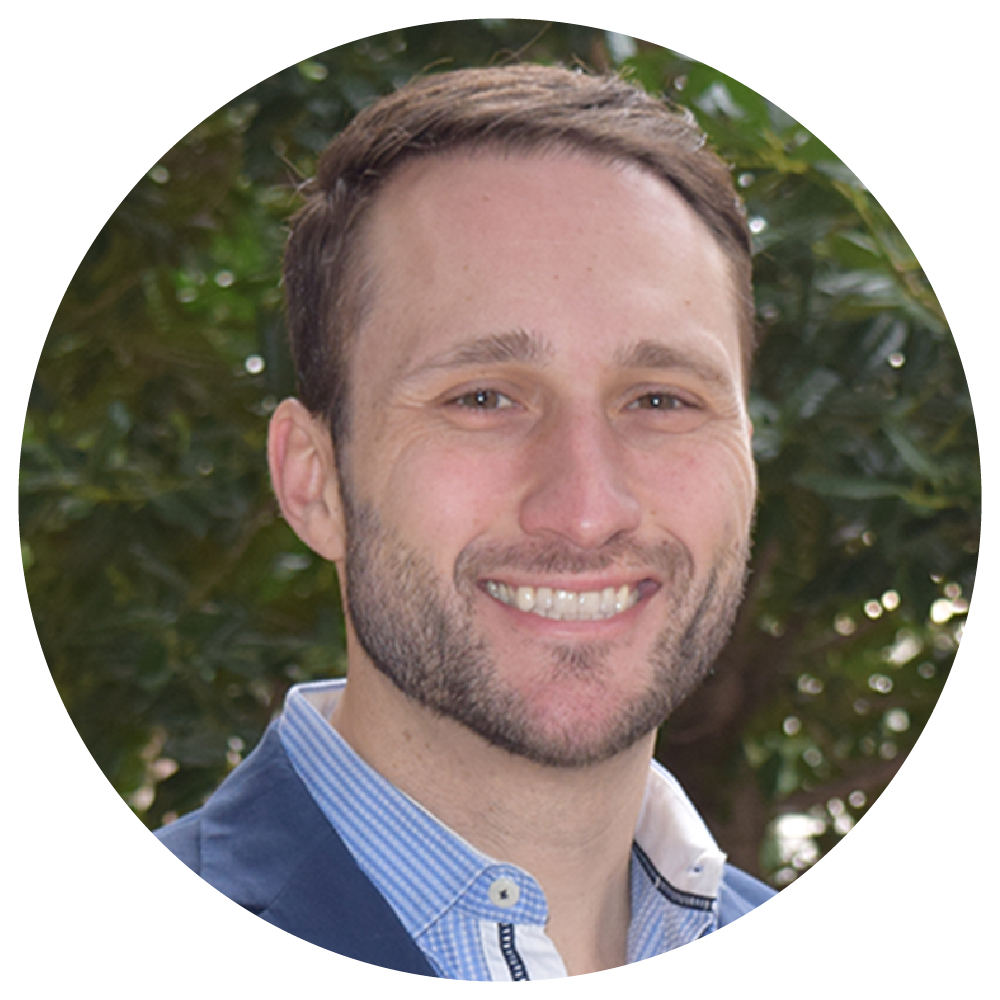
Paul Perrin, Ph.D. Contributor
Mike Pugh is a fourth-year Ph.D. candidate in the counseling psychology program at Virginia Commonwealth University. His interests include cultural sensitivity of neuropsychological assessment, diagnosis, and rehabilitation procedures, mental health and adjustment to disability among underserved populations, and dismantling socially-based oppression domestically and internationally.
Chimdindu Ohayagha is a second-year Ph.D. student in the counseling psychology program at Virginia Commonwealth University. Her research focuses on disability rehabilitation and adjustment. In particular, she is interested in mental health, traumatic brain injury, and neurological conditions in racially/ethnically diverse populations, African populations, and underserved global regions.
Paul Perrin is an Associate Professor of Psychology and Physical Medicine and Rehabilitation at VCU. He is jointly appointed as a Research Psychologist and Co-Director of the Polytrauma Rehabilitation Center TBI Model Systems Program at the Central Virginia Veterans Affairs Health Care System. His is passionate about developing evidence-based psychosocial interventions to help individuals with traumatic neurological injuries and their families adjust to disability. In particular, he tries to figure out how to bring these interventions to underserved and hard-to-reach populations in the US and internationally.
Option 2: Early Neurorehabilitation and Recovery from Disorders of Consciousness in Patients with Severe COVID-19: Findings from a Pilot Study
Research shows early rehabilitation improves outcomes in patients with impaired consciousness after brain injury, but its applicability to COVID-19 is unknown. This presentation will discuss findings from data collected through an experience adapting an early rehabilitation program for patients with impaired consciousness associated with severe COVID-19 illnesses.
Session Objectives:
- Introduce a basic early rehabilitation program utilizing the Coma Recovery Scale Revised (CRS-R) for patients with impaired consciousness associated with severe COVID-19 illnesses;
- Present interesting patterns and findings associated with recovery for these patients;
- Demonstrate the value of rehabilitation interventions for patients with impaired consciousness associated with severe COVID-19 illnesses, even from potentially varying causes.
About the Speakers
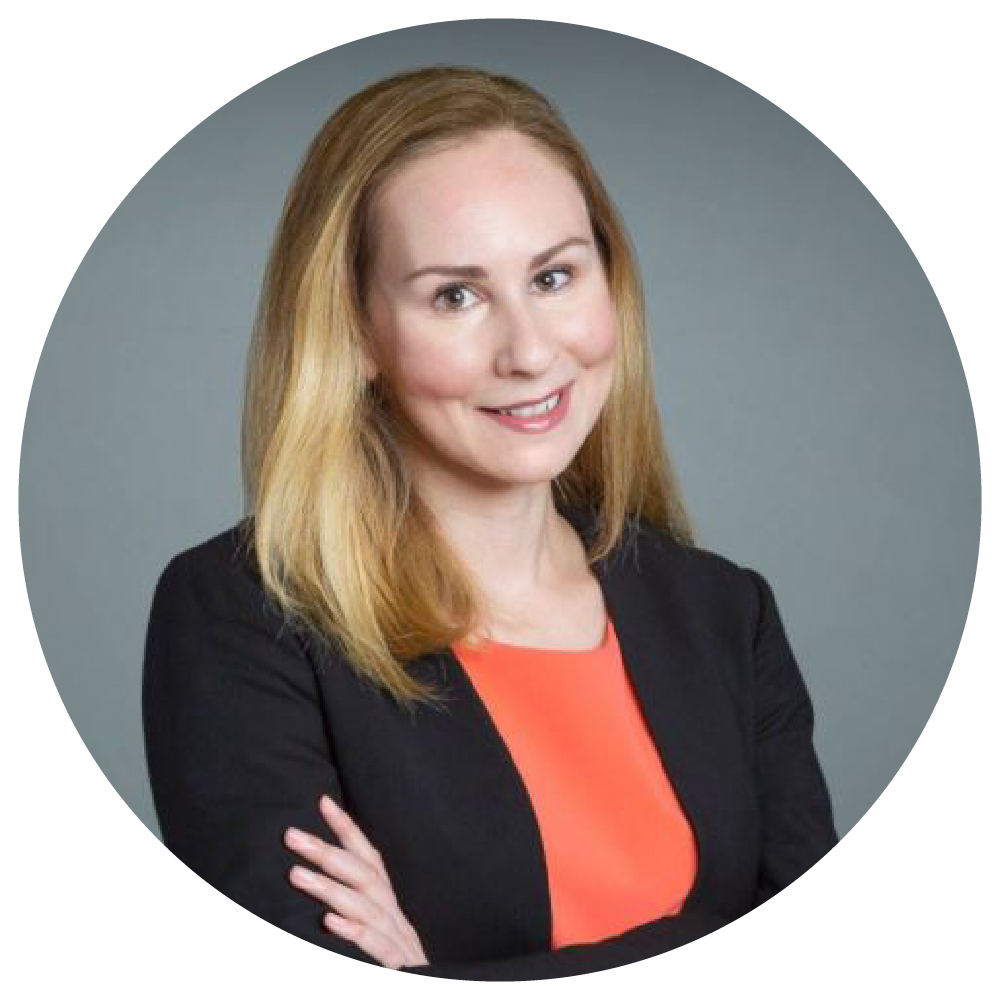
Lindsey Gurin, M.D.

Brian Im, M.D.
Dr. Lindsey Gurin is a clinical assistant professor of neurology, psychiatry, and rehabilitation medicine at NYU Langone Health. Dr. Gurin is dually board-certified in neurology and psychiatry and currently serves as Director of Behavioral Neurology at NYU Langone Orthopedics Hospital, where she provides neuropsychiatric consultation to the Rusk acute inpatient brain injury rehabilitation service. Dr. Gurin has published on neuropsychiatric manifestations of brain injury and her current research interests include psychosis after brain injury; disorders of consciousness; and catatonia in patients with neurologic disorders.
Dr. Brian Im completed his physical medicine and rehabilitation residency at NYU School of Medicine/Rusk Institute of Rehabilitation Medicine and subsequently did a fellowship in brain injury rehabilitation medicine at UMDNJ/Johnson Rehabilitation Institute. Upon finishing his fellowship, Dr. Im returned to Bellevue Hospital specifically with an interest to improve the brain injury rehabilitation program for the underserved public city hospital population. During his five years at Bellevue, Dr. Im became the director of the brain injury rehabilitation program. Currently, Dr. Im is director of brain injury rehabilitation at Rusk Rehabilitation where he continues to treat inpatients. He is also co-director of the traumatic brain injury model systems project at Rusk Rehabilitation and Bellevue Hospital, and the fellowship director for the NYU Rusk Rehabilitation brain injury medicine fellowship.
Breakout Session Presentations (choose one)
2:30 p.m. - 3:30 p.m.
Option 1: Built to Last – Partnerships as the Cornerstone of Virginia’s Brain Injury Community A Case Study in Meaningful Collaboration: Sheltering Arms Institute & Brain Injury Association of Virginia
“We don't heal in isolation, but in community.” ~S. Kelley Harrell
By joining efforts and creating solidarity, Virginia’s brain injury community can build and strengthen successful systems of care and support. But meaningful and enduring community partnerships don’t come easy and they don’t happen in a vacuum. Join us for this panel discussion to learn how two organizations, the Brain Injury Association of Virginia (BIAV) and Sheltering Arms Institute (SAI), came together to overcome challenges and develop an effective collaboration. You will learn exactly what this partnership means for individuals, families, and professionals with examples from the field. Tips and resources for identifying potential community partners, evaluating success, and leveraging each other’s strengths will also be provided.
Session Objectives:
- Identify the steps necessary to form successful community partnerships;
- Describe community resources available from SAI and BIAV to support persons impacted by brain injury during and after rehabilitation;
- Discuss the benefit of community partnerships on the brain injury community as a whole.
About the Speakers

Alison Clarke, C.T.R.S.
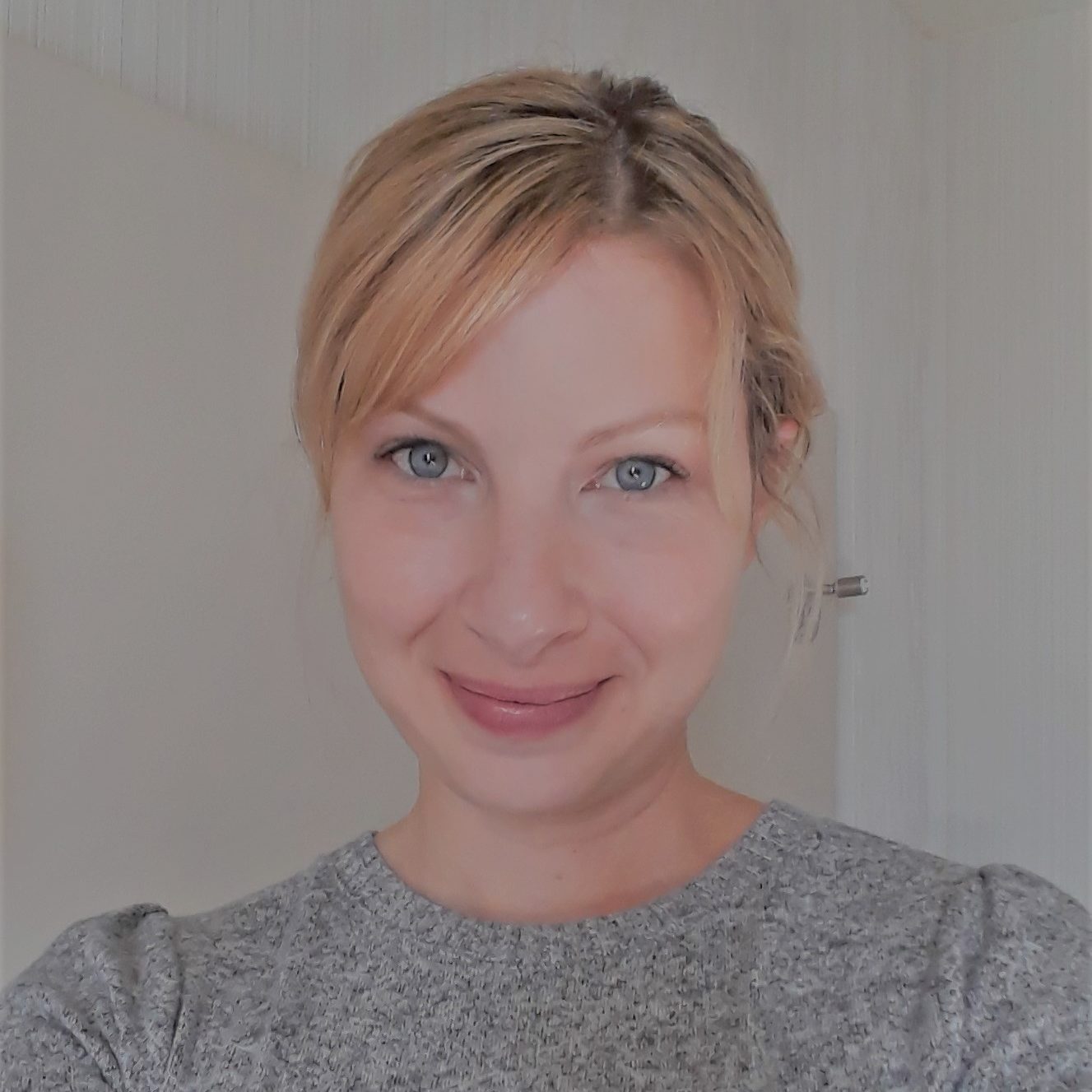
Laura Bennett, M.A.
Alison Clarke is the Community Engagement Manager at Sheltering Arms Institute. She is a graduate of West Virginia University with a degree in Recreational Therapy and a Certificate in Gerentology. She is a Certified Therapeutic Recreation Specialist, Stanford Certified Chronic Disease and Diabetes Self Management Program Instructor, and served as a past Board member for the United Spinal Association of Virginia. The majority of her career has focused on developing community-based recreation and wellness services addressing quality of life for individuals recovering from injury or illness. She has served in leadership roles working with non-profit, public, and private organizations developing collaborative programs and partnerships to improve the health of patients and the community.
Laura Bennett is the Director of Programs for BIAV. She directs the association's programs and operations and has over 20 years of experience in nonprofit association management. Working in the intellectual disability, autism, domestic and sexual violence and brain injury fields has given her a multifaceted understanding of and insight into developing and maintaining successful community partnerships.
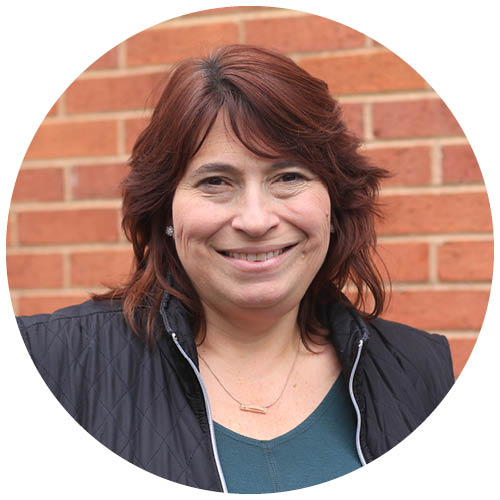
Debra Holloway, CBIS
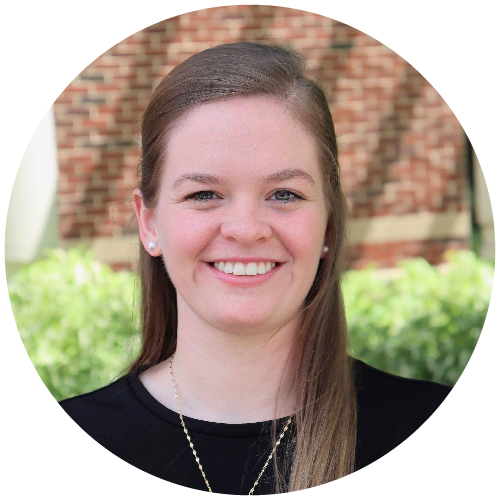
Amy Smith, OTD
Debra Holloway has been BIAV's Education Manager for six years and is a Certified Brain Injury Specialist and a Certified Information & Referral Specialist - Aging/Disability. Most of Debra's career has been spent advocating on behalf of the disability community educating people on inclusion, self-determination, community-based supports, and person-centered planning. She has served on numerous boards and councils and has a keen understanding of how to successfully collaborate with a wide range of stakeholders.
As BIAV's Clinical Liaison, Amy Smith leads key initiatives with community partners including the Sheltering Arms Institute, domestic/sexual violence and brain injury programs participating in BIAV's VDH-funded screening pilot, and universities invested in our OTD internship program. Whether she is working with service recipients, providers, funders, or other partners, Amy is adept at combining her clinical and community engagement skills and expertise to achieve positive, sustainable outcomes.
Option 2: Aging and Traumatic Brain Injury
Traumatic brain injury (TBI) is more than an acute condition with a discreet beginning and end. Evidence has shown that life expectancy is shortened for many after sustaining a TBI including many being discharged to community settings. TBI increases risk for several medical conditions and ideally requires lifelong follow-up with practitioners familiar with long-term sequelae. This lecture will review existing literature pertaining to chronic problems related to TBI and recommendations for follow up and assessment.
Session Objectives:
- Delineate risk factors associated with decreased life expectancy following TBI;
- Describe medical problems associated with long-term survival post-TBI;
- Discuss rationales for conducting various assessments long-term post-TBI.
About the Speaker
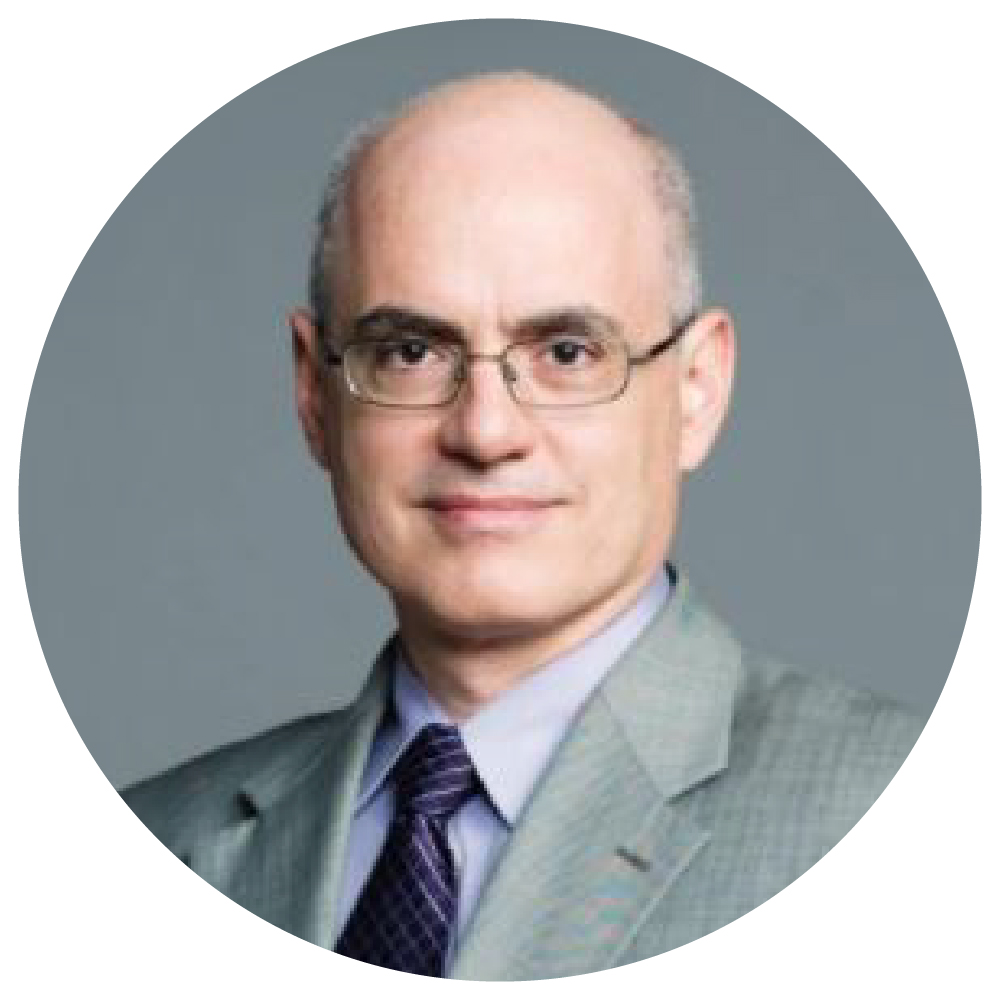
Steven Flanagan, M.D.
Dr. Steven Flanagan is highly recognized, nationally and internationally, as one of the leading experts in the area of brain injury rehabilitation. Dr. Steven Flanagan joined NYU Langone Health and the NYU Grossman School of Medicine in 2008 as Professor and Chairman of Rehabilitation Medicine and Medical Director of Rusk Rehabilitation. Dr. Flanagan serves on numerous medical advisory boards, including the India Head Injury Foundation, the Brain Trauma Foundation and the Concussion Initiative of the Brain Injury Association of New York State. He is a peer reviewer for several scientific journals, serves on the editorial board for the Journal of Head Trauma Rehabilitation and served in multiple leadership roles for the American Academy of Physical Medicine and Rehabilitation where he is currently Vice President of their Board of Governors. Dr. Flanagan served as Panel Chair for several national review panels including the Veterans Administration and the Congressionally Directed Medical Research Program-Department of Defense program for TBI. He has received awards for his work as an educator, clinician, and advocate for people with brain injury from several organizations, and is continually listed as one of America’s Top Doctors since 2010 by Castle Connolly.
